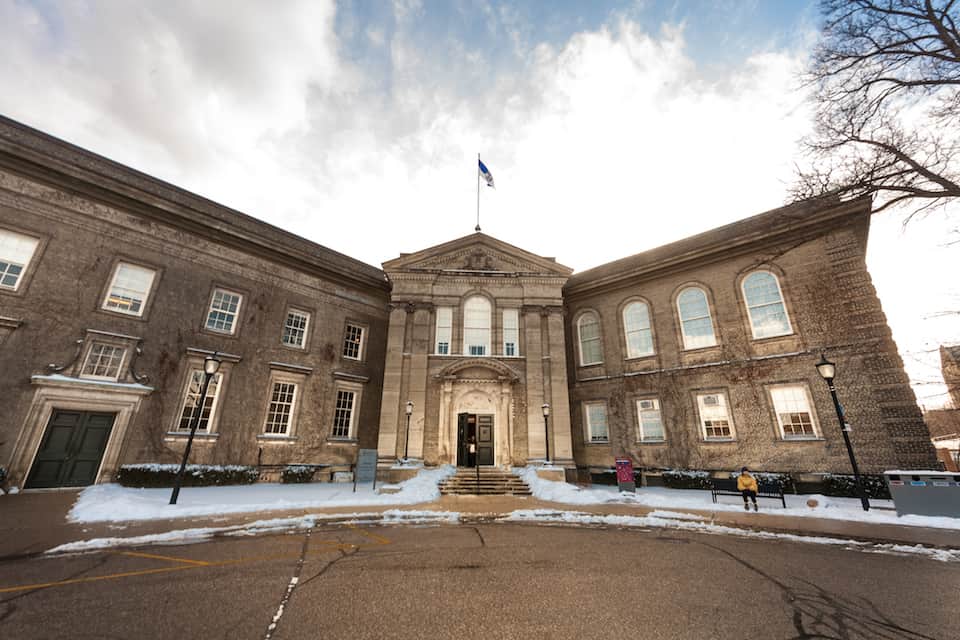The Business Board of U of T’s Governing Council voted on February 27 to increase tuition for both domestic and international students after facing opposition from student leaders.
The motion will have to pass endorsement and forwarding at the Executive Committee meeting on March 28 before facing a vote of approval by the Governing Council on April 4. UTSU President Jasmine Wong Denike and Vice-President Internal and Services Mathias Memmel were present at the meeting.
“I never expected them to agree with me and change their votes, and President Gertler gave a rebuttal,” Memmel told The Varsity. “But a number of the voting members seemed to appreciate that I was there and making arguments,” he said.
Memmel and Denike argued that tuition increases fundamentally challenge the university’s commitment to accessible education, which states, “No student offered admission to a program at the University of Toronto should be unable to enter or complete the program due to lack of financial means.”
The Business Board discussed a three per cent increase for the Faculty of Arts & Science undergraduates and a five per cent increase for undergraduates in professional faculties. These increases adhere to the fee increase cap under provincial regulation.
The international student fee increases are not regulated. It was noted in the Business Board meeting that international student tuition will be the largest source of revenue for U of T in 2018. Tuition for international undergraduate students enroling next year will start at $45,690.
“If you’re an international Arts and Science student who started in 2015,” Memmel’s speech to the Business Board reads, “your fees will have increased by $12,000 by 2019.”
In addition, students in the international Rotman Commerce cohort will see their tuition rise by $10,000 next year alone.
The only member of the Business Board who voted against the tuition increase was former UTSU President Ben Coleman, who sits as an appointed student member. Coleman’s letter to Business Board members, titled “Undergraduate International Tuition Fees — Where Are We Going?”, played a role in setting the context for discussion on February 27.
“It was a frustrating meeting. The administration is only committed to a token effort to educate poorer students from around the world and leaves it up to the divisions to support international students’ academic needs,” Coleman told The Varsity.
“They plan on maintaining exorbitant fee increases into the forseeable future, regardless of how risky that is for the university’s budget, and how devastating that is for the students who come here,” he went on.
Scott Mabury, Vice-President University Operations at U of T, told The Varsity that the university has made “modest tuition increases both domestically and internationally, in accordance on the domestic side with provincial caps.”
Mabury said that this is the cost of delivering the best quality programs and services to students.
He argued that a focus on tuition alone is unfair when it comes to assessing the university’s support of students.
“Far more interesting and impactful to students is the student aid side of the equation, because it’s never just about tuition increases,” he said. “We are hitting $200 million [in student aid], 55 per cent of our undergrad students are getting OSAP, it is a tremendously positive story.”
“The sticker price is not the story,” Mabury said. He also stated that students need to be more aware of developments in student aid.
He suggested that the narrative of rising tuition that is told by student advocacy organizations is limited.
“We need The Varsity to capture the fullness of the story so that we don’t only see articles from CFS and others that tuition is rising, that Ontario has the highest tuition in the country,” Mabury said. “These things, they’re functionally not true, because it’s the net tuition price that’s important.”
Memmel said that he’d like “to see universities and students’ unions work together to strengthen the public education system.” He conceded that this “would be a major departure from the current orientation of student politics and would require good will and trust on both sides.”
Denike urged students to be engaged and pay attention to Governing Council, no matter how “exciting” student politics may be. “That’s where all the major decisions are being made, and those are the people who we need to be constantly engaging with to enact meaningful change,” she told The Varsity.
Memmel is currently on a temporary leave of absence from the union in order to run for 2017–2018 president of the UTSU.


